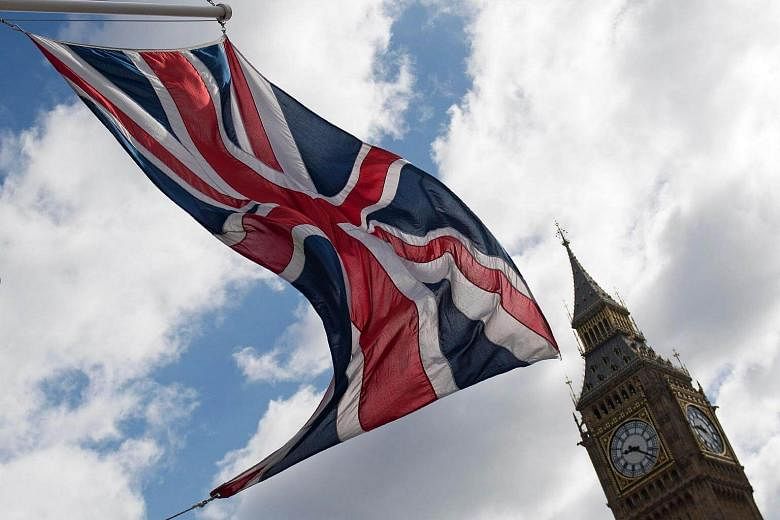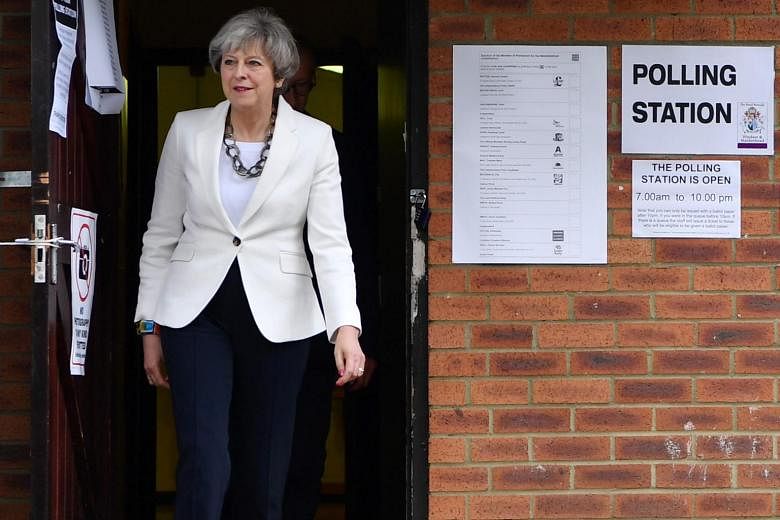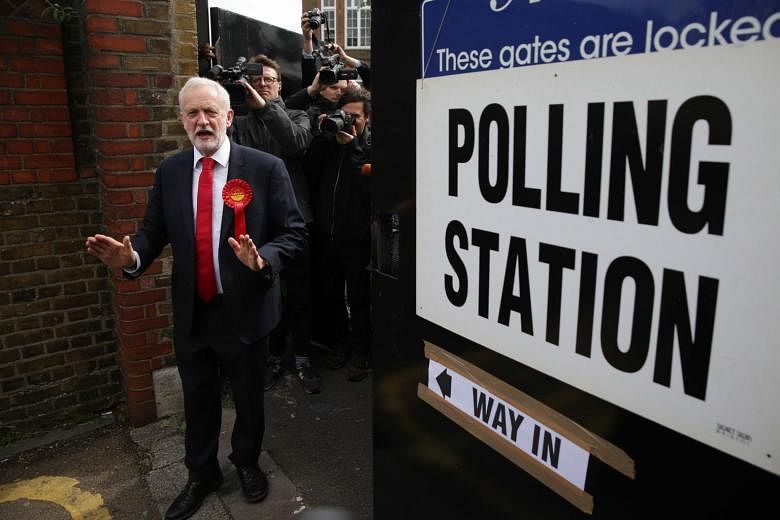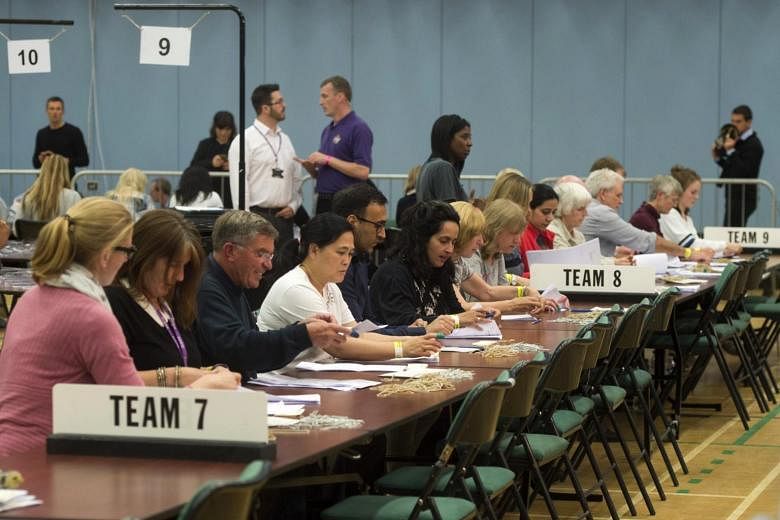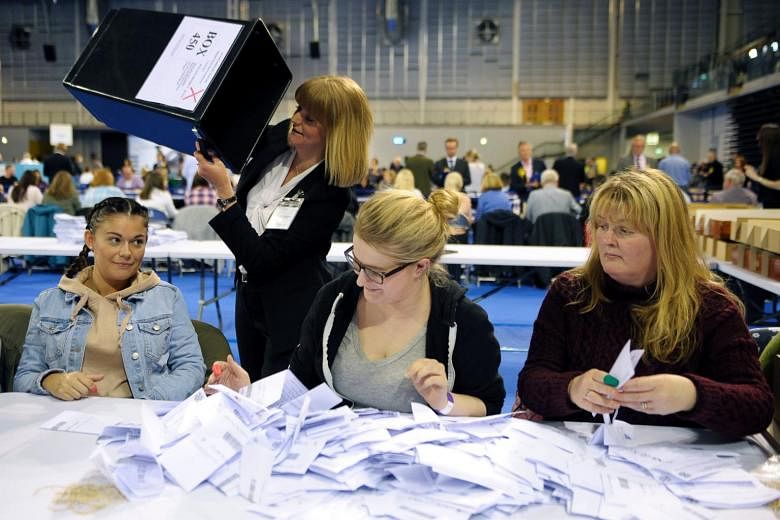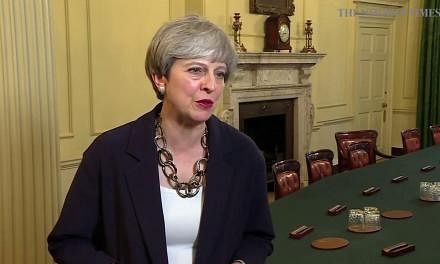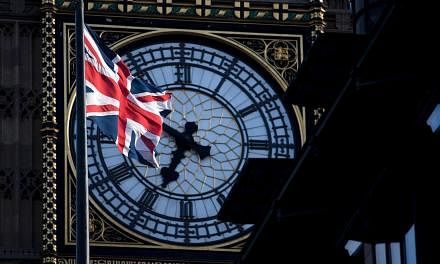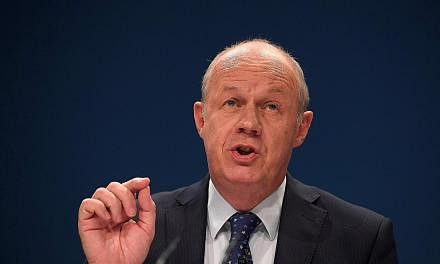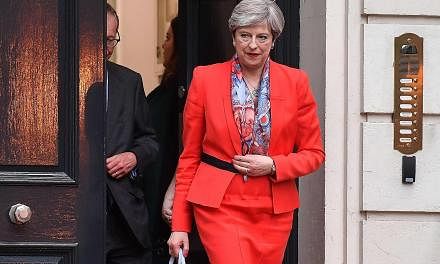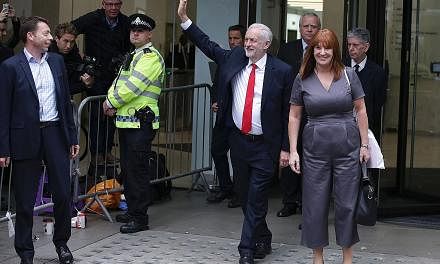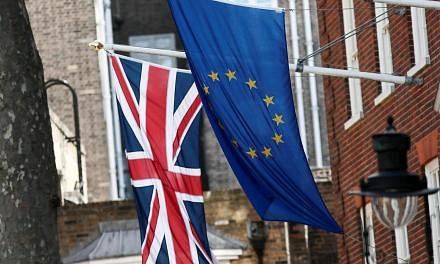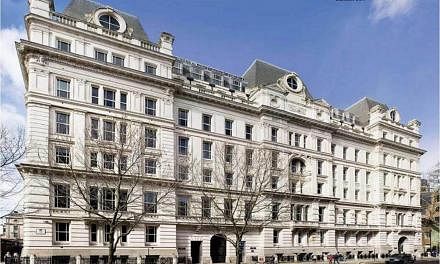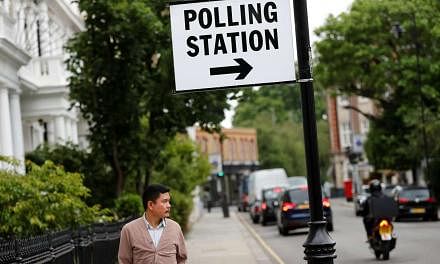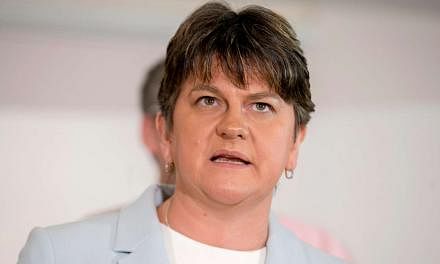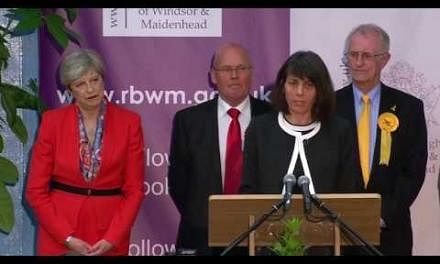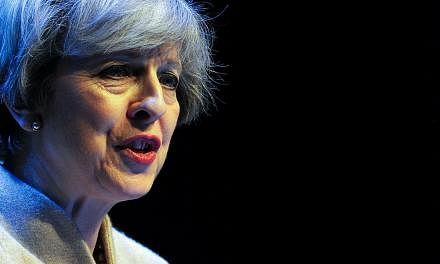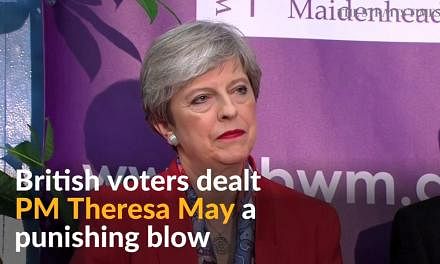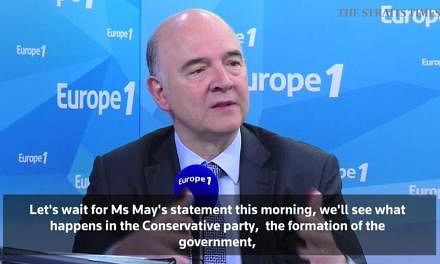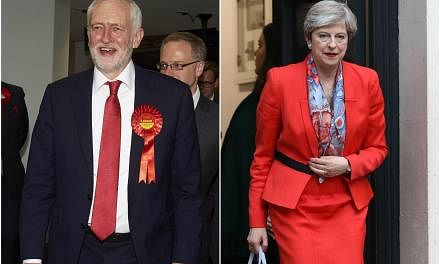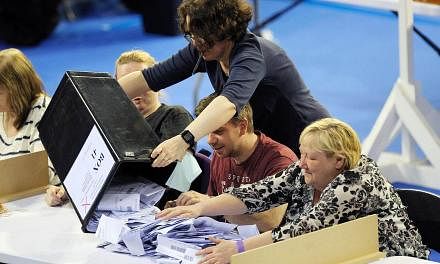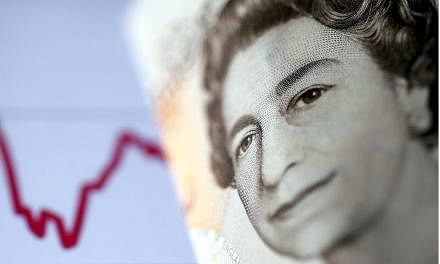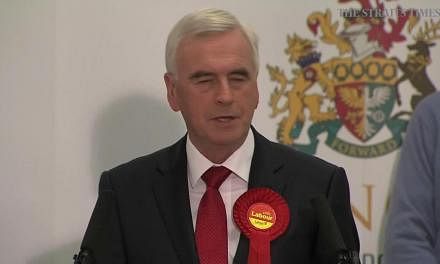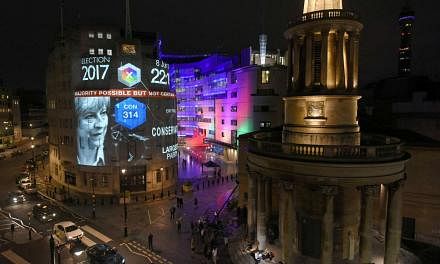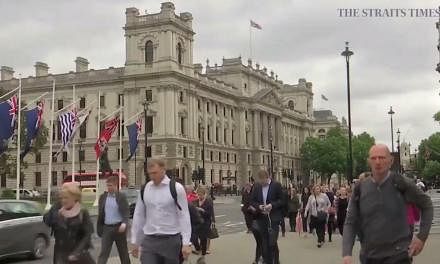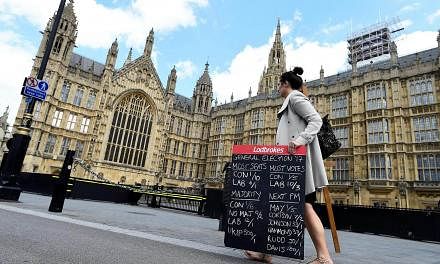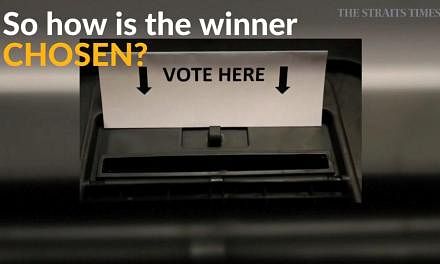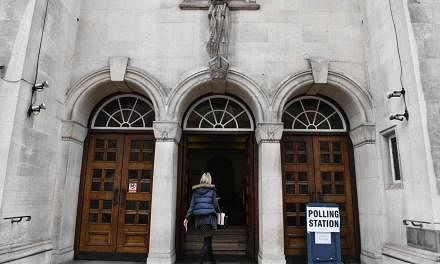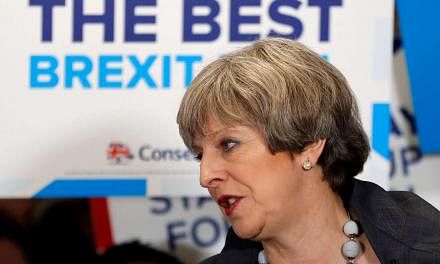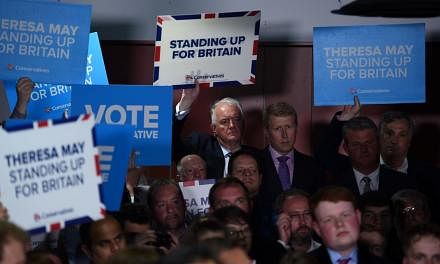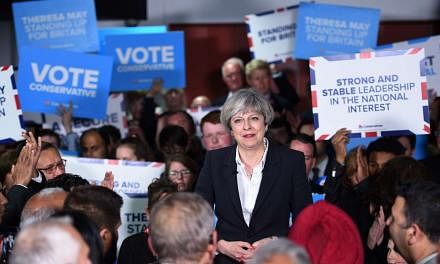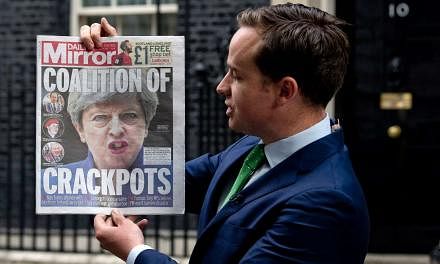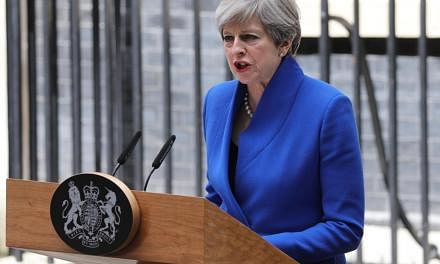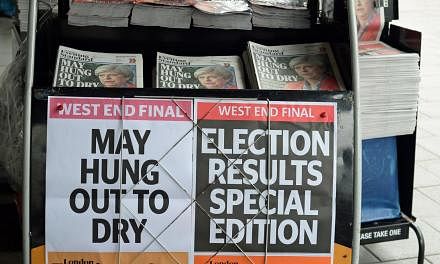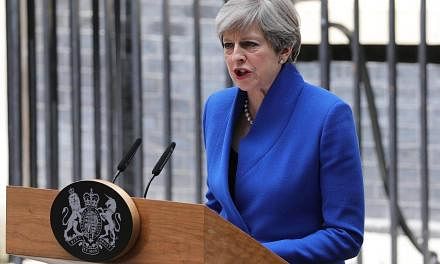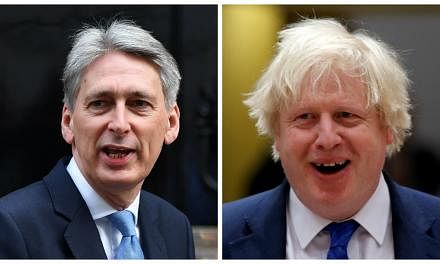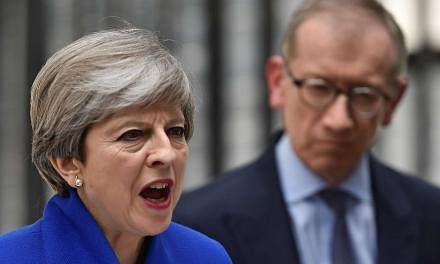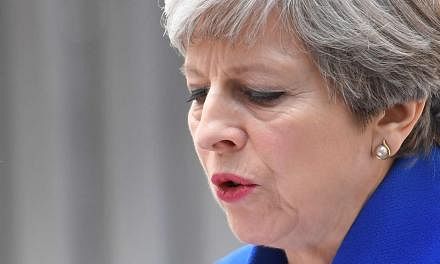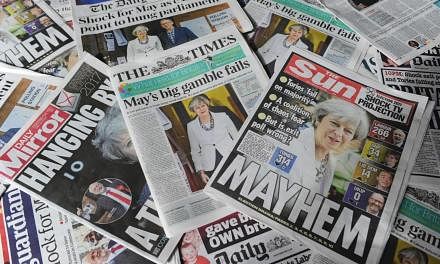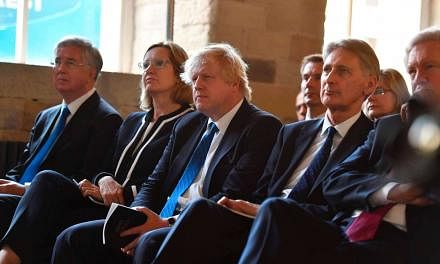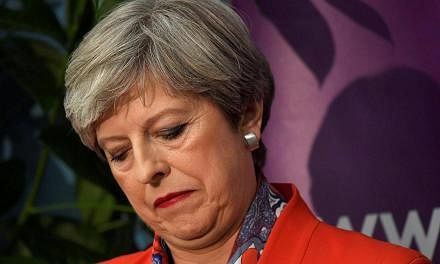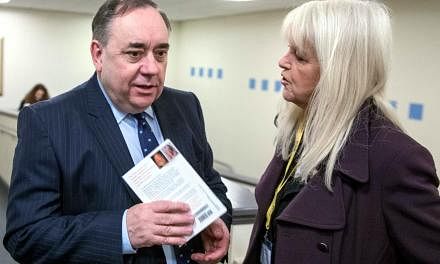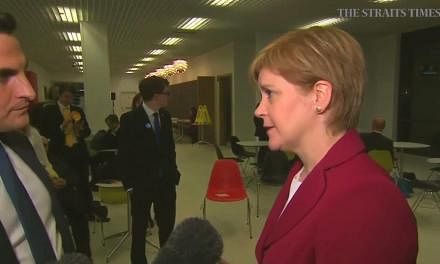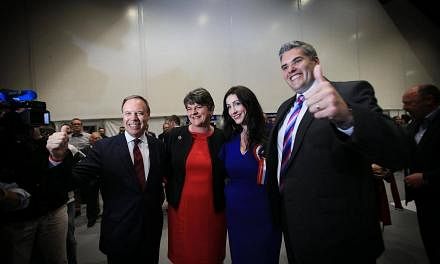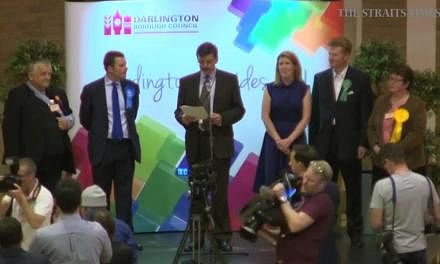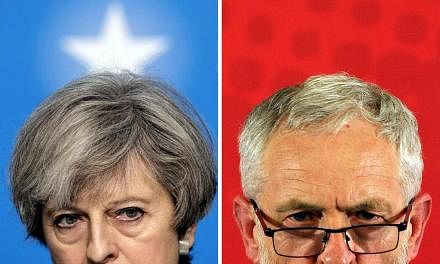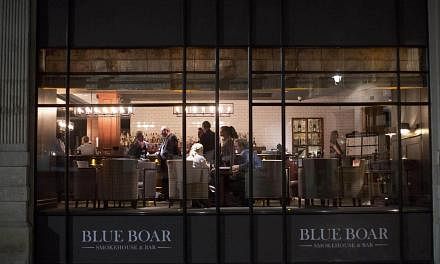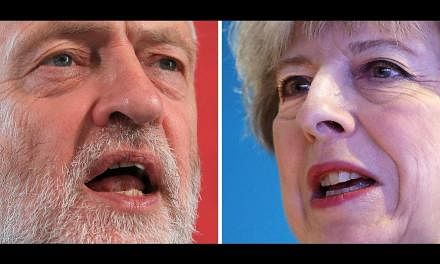LONDON - Prime Minister Theresa May defied calls to resign after the ruling Conservative Party lost its majority in the general election, saying that her party would provide "stability" for Britain.
Mrs May, who had called a snap general election which has backfired spectacularly on her, said Britain needed a period of stability and that she would take responsibility for delivering it if she won the most seats. She was speaking at the count in Maidenhead where she was re-elected.
The Conservatives have won 317 seats so far - nine seats short of the majority needed in Parliament. Opposition leader Jeremy Corbyn's Labour Party, meanwhile, has enjoyed a successful election campaign, taking 260 seats - a gain of nearly 30 seats from the 2015 election. The threshold needed to form a majority is 326.
With Thursday's vote unlikely to yield a clear winner, Mrs May faced calls to quit within her own party as well as from Corbyn.
She said: "If, as the indications have shown, and if this is correct that the Conservative Party has won the most seats and probably the most votes then it will be incumbent on us to ensure that we have that period of stability and that is exactly what we will do."
She said her priorities remained the same: getting the Brexit deal right and doing what is best for the country.
Mrs May is expected to speak at 1000 GMT (5pm Singapore), according to LBC radio.
The BBC said her mood was 'calm' and 'sombre' when she addressed staff at the Conservative Party headquarters, but did not directly address her future. But BBC's political editor Laura Kuenssberg said the British leader "has no intention of announcing her resignation later today."
Ms Kuenssberg added, however: "It's not clear to me whether they're trying to kill the rumours off before she truly makes her mind up."
Mrs May will now face serious questions about her decision to call the vote three years early when the Conservatives had a 17-seat majority. She said the move was a bid to strengthen her mandate ahead of tough negotiations to leave the EU, and for a while after she called the election on Apr 18, she looked set to coast to victory.
But a series of damaging policy proposals and subsequent U-turns, as well as recent terror attacks on the UK which tarnished her image as a strong leader drastically cut her lead. in the polls.
The result on Friday looks set to worsen the political uncertainty in Britain and potentially weaken London's hand in Brexit talks due to begin on June 19.
Conservative member of parliament Anna Soubry became the first in her party to call for Mrs May's resignation, saying she should "consider her position". "I'm afraid we ran a pretty dreadful campaign," Soubry said.
Mr Corbyn, who won his own seat in north London, said Mrs May's attempt to win a bigger mandate had backfired. "The mandate she's got is lost Conservative seats, lost votes, lost support and lost confidence."
The leader of the Scottish National Party, Nicola Sturgeon, called the results "a disaster" for Mrs May.
"She called an election clearly very arrogantly thinking that she was going to crush the opposition, sweep everybody aside and cruise to a landslide majority, her position is very, very difficult."
"Whatever happens, Theresa May is toast," said Nigel Farage, former leader of the anti-EU party UKIP.
GAMBLE BACKFIRED
Northern Ireland's Sinn Fein said on Thursday it will maintain its policy of not taking seats in Britain's Parliament. This means that if the party at least retains the four seats it won in 2015, the winning party would need 324 seats for a majority, rather than 326.
If the forecast turns out to be correct, Mrs May will need to decide whether to resign or try to form a new government. Another election is also a possibility if neither the Conservatives nor Labour is able to form a working majority.
"Britain on a knife edge" headlined the Daily Mail's early edition Friday, while the Daily Mirror had a picture of May and the caption "Hanging by a thread". The Sun proclaimed "Mayhem."
The pound plummeted at the news of the exit poll. Traders had banked on a comfortable win for May.
"It's a disaster for Theresa May," said Iain Begg, a professor of politics at the London School of Economics (LSE).
"Her leadership will be called into question and she will be under pressure to resign if these results stay as they are.
"This is going to disrupt British politics quite fundamentally."
EU Budget Commissioner Guenther Oettinger told German broadcaster Deutschlandfunk."With a weak negotiating partner, there's a danger that the negotiations will turn out badly for both sides."
POTENTIAL ALLIES
In the previous parliament, elected just over two years ago, the Tories had 330 seats and a working majority of 17 seats.
There have been only two general elections since 1929 which resulted in hung parliaments, in 1974 and 2010.
Mrs May could potentially turn to Northern Ireland's Democratic Unionist Party (DUP) to form a coalition. DUP is projected to win 10 seats and indicated on Friday it would be willing to join the Tories.
But Labour had potential allies too, including the SNP and the Liberal Democratic Party.
In 2010, the Conservatives, led by Mr David Cameron, entered a coalition with the Liberal Democrats, which ran for a term of five years. The Tories had won 306 seats in that year, which, combined with the Lib Dems' 57 seats, made for an absolute majority.
In 2015, the Conservatives won 331 seats, allowing them to govern on their own, but the Lib Dems secured only eight seats.
The Lib Dems would find it very difficult to join a coalition again after suffering severe damage from its deal with the Conservatives after the 2010 election, former leader Menzies Campbell said on Thursday.
"(Party leader) Tim Farron made it very clear. He said no pact, no deal, no coalition. We've had our fingers burnt by coalition, I don't need to tell you that. I find it very, very difficult to see how Tim Farron would be able to go back on what he previously said," Campbell told the BBC.
With additional information from Reuters, Agence France-Presse
